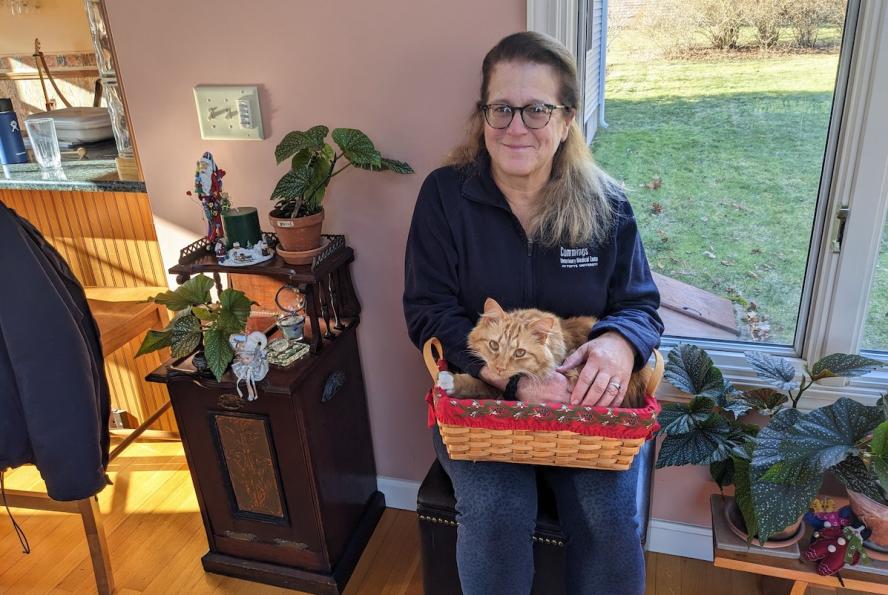-
About
- Leadership & Faculty
- News & Events
-
Admissions
-
Academics
- Graduate
- Advanced Clinical Training
- Continuing Education
-
Student Life
-
-
Accommodations
- Our Campus
-
Accommodations
- Graduate Resources
-
-
Research
-
Hospitals & Clinics
- Emergency Care
- Hospital Services
-
Community Outreach
- Volunteer
One Health Advocate Studies Disease Processes to Benefit Animals and Humans
Q&A with Associate Chair, Department of Clinical Sciences Cynthia Leveille-Webster

Cynthia Leveille-Webster (she/her)
Professor and associate chair, Department of Clinical Sciences
What is your hometown and/or where did you spend your adolescent years?
I grew up in a small town on the banks of the Connecticut River called Turners Falls, Massachusetts. I lived there in a house built by my father until I graduated from college.
What inspired you to become an educator or researcher?
My parents instilled in me a desire to work in the public space and to try and make a difference in people’s lives. So, this is something I always wanted to do. I also had a love of biology and problem solving so medicine seemed a great profession. Once I learned that animals get the same diseases as people do, I became a One Health addict and dedicated myself to studying disease processes to benefit animals and humans.
What are your passions, academically and/or personally?
My academic passion is research. I love formulating questions that no one has previously asked and then designing studies to find the answer. I also enjoy teaching ... i.e. advancing people’s knowledge. Personally, I love and respect our flower friends and have a house full of potted plants and an extensive perennial garden. And I am a self-proclaimed cat lady.
Can you share something about yourself that may be surprising or unexpected?
My personal interest in liver diseases in dogs, cats, and humans was first piqued by woodchucks. While I was a student at Cornell Veterinary School, I worked with a clinician who was studying a naturally occurring viral hepatitis (inflammation of the liver) that occurred in woodchuck in upstate New York. This viral infection was a woodchuck version of hepatitis B viral infection in humans! Many important discoveries on how to treat viral hepatitis in people have been made in the colonies of woodchucks I helped to establish.
Do you have a pet or pets? Tell us about them.
I have a cat named Fender that we adopted from Henry & Lois Foster Hospital for Small Animals. He came to our ER service as an injured young adult off the Worcester streets. We named him Fender after the guitar brand because my musician husband grew up in Worcester. A spirited ginger, he wakes us up at 5:30 every morning and loves to walk on a leash and harness in our Grafton neighborhood and on the beach at our Maine condo.
Department:
Dept. of Clinical Sciences